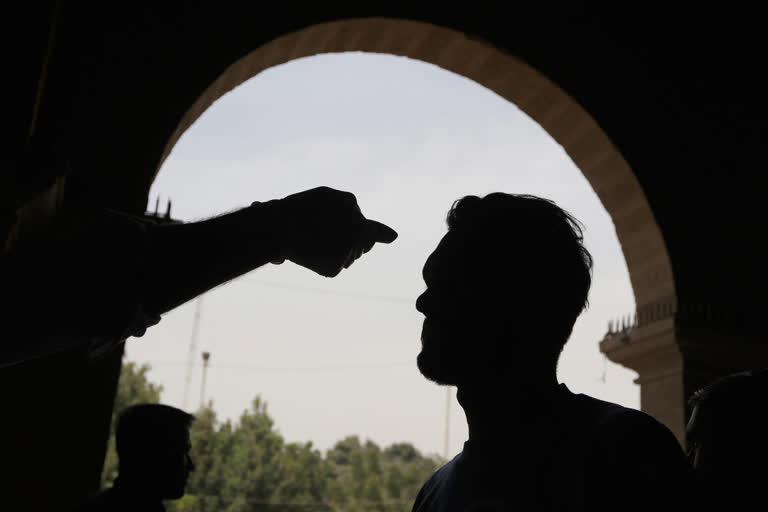Barcelona: With lockdowns, curfews and travel restrictions spreading across the globe, countries have turned to increasingly drastic measures on Sunday to try to slow the spread of the new coronavirus.
Italy hits one-day record with 368 new coronavirus deaths
Italy on Sunday recorded 368 new deaths from the novel coronavirus, its highest one-day increase to date, taking the total to 1,809, the most outside China, official data showed. The number of infections has reached 24,747, a count released to the media by Italy's civil protection service said.
Sky-rocketing deaths in Iran
Iran is battling one of the worst outbreaks outside China. The 113 new deaths reported on Sunday by the Health Ministry were the first time a daily reported death toll exceeded 100. The fatalities brought the country's death toll to 724 so far, amid nearly 14,000 confirmed cases. The real number of infections could be even higher, as questions have been raised about the government's transparency.
Read also: Queen shifted from Buckingham Palace amid COVID-19 fears
The Philippines seals capital
Soldiers and police sealed the densely populated Philippine capital from most domestic travellers in one of Southeast Asia’s most drastic containment measures. The move mirrored a lockdown Spain announced just hours earlier for its 46 million citizens.
Read also: Passengers held on cruise ship in New Zealand over virus fears
France closes tourist destinations
France ordered the closing of just about everything the rest of the world loves about it — the Eiffel Tower, the Louvre, the cafes and restaurants — as governments took increasingly desperate measures to put more space between people and contain the virus.
Hourslong waits at US airports
At US airports, travellers returning from Europe were greeted with hourslong waits for required medical screenings. While American citizens, green card holders and some others are allowed to return to the US amid new European travel restrictions, they're being funnelled to 13 American airports where they're subject to health screenings and quarantine orders.
Videos and photos posted on social media showed packed, winding lines of returning travellers. On Twitter, airports like Dallas/Fort Worth and Chicago O'Hare acknowledged the delays and asked for patience.
President Donald Trump announced that the US, which days ago barred travellers from most of Europe, will extend the ban to Britain and Ireland. And more cities in the US put in place curbs on gatherings of more than a few hundred people, with one New Jersey city even announcing an overnight curfew.
Gravity shifts to Europe, North America from China
In China, where the virus was first detected in December, those arriving on overseas flights were routed to a converted exhibition centre for initial checks before being shuttled off to their homes or other quarantine locations.
It was clear, however, that the centre of gravity in the crisis had shifted westward toward Europe and North America. The virus has infected more than 1,50,000 people worldwide and killed over 5,600.
Spain imposes exceptional measures
In a nationally televised address on Saturday, Spanish Prime Minister Pedro Sánchez detailed the battery of exceptional measures put in place as part of a two-week state of emergency to fight the sharp rise in infections.
Later Saturday, Spain’s government said Sánchez's wife had tested positive for the coronavirus. Begoña Gómez and the prime minister are in good health, the government said.
In a lockdown similar to the one already imposed in Italy, people will be allowed to leave their homes only to buy food and medicine, commute to work, go to hospitals and banks, or take trips related to the care of the young and the elderly. All schools and universities were closed, along with restaurants, bars, hotels and other nonessential retail businesses.
“From now we enter into a new phase,” Sánchez said after a Cabinet meeting that lasted over seven hours. “We won’t hesitate in doing what we must beat the virus. We are putting health first.”
With inputs from AP



